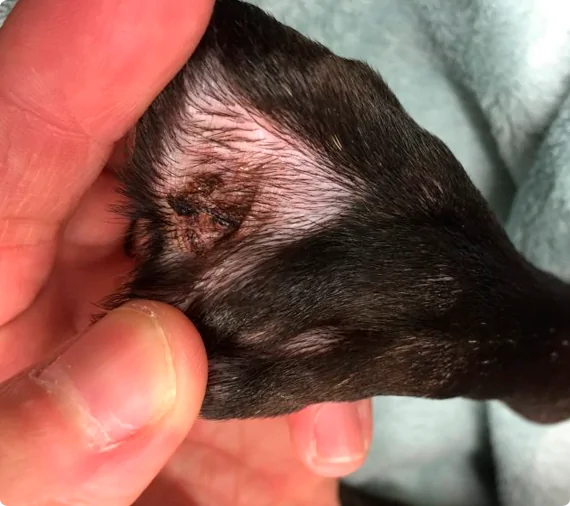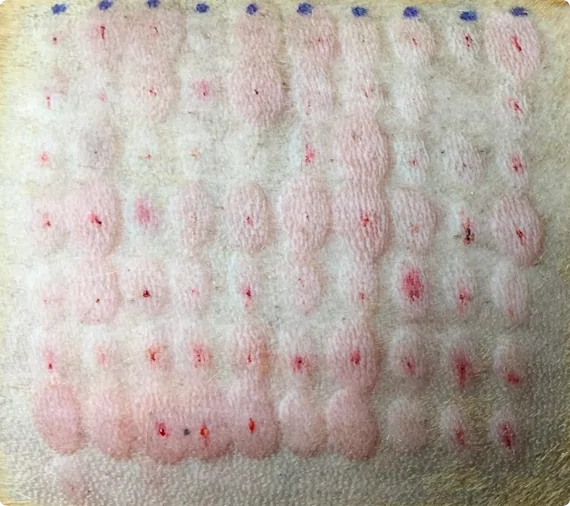
Dermatology Service
Intradermal Skin Testing and Desensitisation
WAVES HOSPITAL
Work up of Allergic Skin Diseases
Allergies are a common cause of itchy skin and ear infections in dogs and cats. Uncontrolled itching is not only uncomfortable but can also result in recurring skin and ear infections. The most common allergies affecting dogs and cats are atopic dermatitis (environmental allergy), food allergies, and insect/flea bites. Some dogs and cats can also have multiple allergies. Through detailed history taking and a physical exam, our dermatologists can prioritise diagnostic tests to determine the underlying allergy your pet has and provide effective treatment options.
UNMATCHED EXPERTISE
Environmental Allergy
Pets with atopic dermatitis most commonly have itchy feet, muzzles and ears. Some pets may also itch around their stomach and the sides of their chest. If your pet has atopic dermatitis, we offer intradermal (skin) and blood testing against an extensive panel of grasses, weeds, trees, moulds, insects, house dust mites, and storage mites to identify the offending airborne allergens. This would allow us to formulate an allergy vaccine to desensitise your pet against these allergens. The allergy vaccine is the only treatment that reverses the pathogenesis of atopic dermatitis. By starting atopic pets on an allergy vaccine early, we can better control their itching for years to come.
CONTACT OUR TEAM


Positive skin test showing multiple large wheals
UNMATCHED EXPERTISE
Allergy Vaccine
The allergy vaccine is the only treatment that reverses the pathogenesis of atopic dermatitis. Early commencement of atopic pets on an allergy vaccine improves the control of their itching for years to come and significantly improves their quality of life. It is given as a subcutaneous (under the skin) injection every 3 weeks or orally under the tongue once to twice a day. The allergy vaccine needs to be given for a minimum of 12 months to evaluate response, with most dogs and cats showing improvement within 6-9mths. The success of the desensitisation program is approximately 70%. Pets that improve will often show at least a 50% reduction in their overall itch level and amount of anti-itch medications required. If the vaccine is successful, a minimum of a 3-year program is recommended to reduce the likelihood of a relapse.
CONTACT OUR TEAM
REGISTRATION
Have a referral?
Have you been referred by a vet? Please complete the registration form.
COMPLETE FORM
Dermatology Services
Allergic Skin
Bee / Wasp
Ear Infection
Complex Cases
Food Allergy
FAQs
OUR SPECIALISTS
Meet Our Dermatology Team
SAY HELLO
DEPARTMENTS
Specialties & Services
CONTACT US
Veterinary Referral & Emergency Services
CONTACT US
